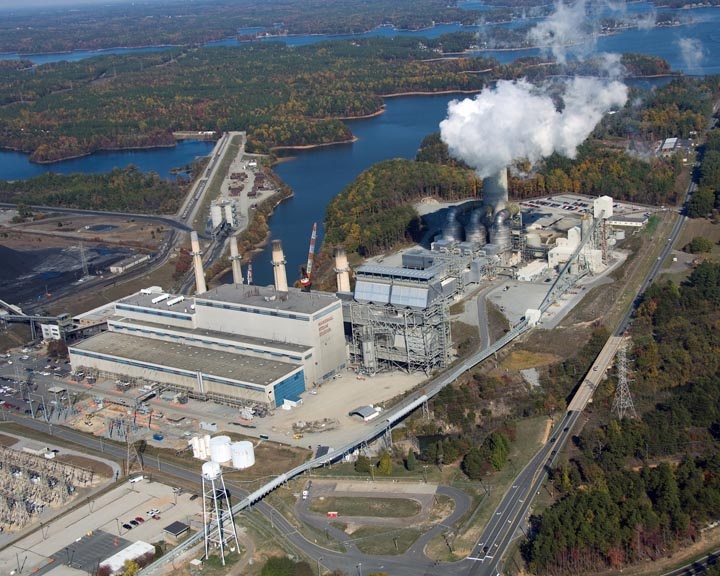INSTITUTE INDEX: The radioactive threat from Duke Energy's coal ash pits

Duke Energy reported radium levels in a monitoring well near its Marshall plant's coal ash pits north of Charlotte that were 2.5 times federal safe drinking water standards. The industry now wants to roll back reporting requirements. (Photo by Duke Energy via Flickr.)
Date by which U.S. coal-fired power plants were required for the first time to release groundwater monitoring results under the U.S. Environmental Protection Agency's 2015 coal ash rule adopted in response to the 2008 TVA coal ash disaster in Tennessee: 3/2/2018
Pages of lab results in which Duke Energy effectively buried findings of radioactive groundwater contamination, which were analyzed by attorney Lisa Evans with the environmental nonprofit Earthjustice: 20,000
Of the 17 Duke Energy plants in the South and Midwest for which Evans examined data, number where nearby groundwater is contaminated with radium-226 and radium-228, cancer-causing radioactive isotopes found in most U.S. coal and concentrated in the ash: 11
Of those 11 Duke Energy plants where groundwater is contaminated with radium, number in Florida: 1*
In South Carolina: 2**
In North Carolina: 8***
Rank of Duke Energy's plant near Asheville, North Carolina, among the facilities reporting the highest groundwater radium measurement: 1
Factor by which the highest radium measurement near the Asheville plant exceeded the EPA standard of 5 picocuries per liter, with the company saying the contamination may be naturally occurring: 38
Factor by which one radium measurement at Duke Energy's Marshall plant north of Charlotte, North Carolina's largest city, exceeded the standard: 2.5
Number of people who live downstream from the Marshall plant and get their drinking water from surface and groundwater sources in the same watershed: more than 1 million
Percent of coal ash pits that are located in low-income communities: about 70
Date on which the Trump EPA announced a proposal to weaken the coal ash rule, including the groundwater monitoring requirements: 3/1/2018
Amount the rule rollback would save the utility industry, which petitioned for the change, in annual compliance costs: up to $100 million
Amount the utility industry spent lobbying at the federal level in 2017: over $114 million
Date on which the N.C. Utilities Commission approved a rate hike for some Duke Energy customers for, among other things, coal ash cleanup: 2/23/2018
Percent by which Duke Energy CEO Lynn Good's salary increased from 2016 to 2017, even though the company was hit with a $30 million state penalty to be paid by shareholders for coal ash mismanagement: 98
Profit Duke Energy made in 2017: $3.05 billion
Date on which a public hearing is set for Washington, D.C., to take comments on the proposed coal ash rule revisions: 4/24/2018
Date on which an alliance of 104 public-interest groups asked the Trump administration to extend the proposed 45-day comment period for at least another 45 days: 3/16/2018
* Crystal River
** W.S. Lee and Robinson
*** Asheville, Belews Creek, H.F. Lee, Marshall, Mayo, Roxboro, Sutton and Weatherspoon
(Click on figure to go to source.)
Tags
Sue Sturgis
Sue is the former editorial director of Facing South and the Institute for Southern Studies.
